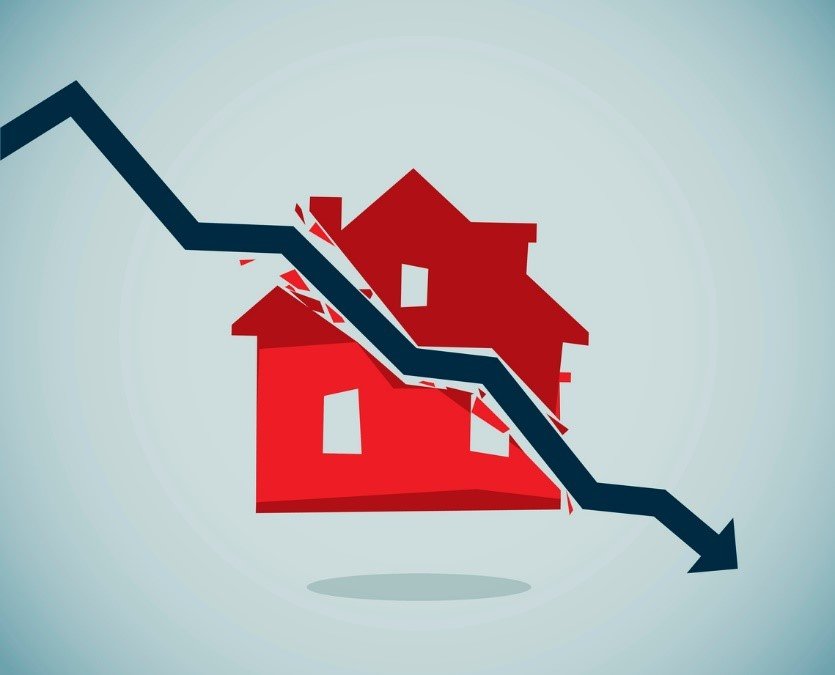Rent or Buy?
With the cost of borrowing rising, does it still make sense to buy a house?
There have been significant changes in the housing market over the past few months.
Mortgage rates spiked following the infamous 'mini budget' in late September, and housing sales have slowed to a crawl. The Bank of England has increased base rates to the highest level in 30 years and has predicted a prolonged recession is just around the corner.
Over the long term, it usually makes sense to buy a house rather than rent. That's because you have the security of tenure, and you end up owning an asset in which you can live rent-free in later life. In that respect, home ownership offers an enforced form of regular saving and wealth creation.
The estate agent Hamptons says that, at current house prices, it would cost the average first-time buyer (with a 10% deposit) an extra £522 per month to buy compared to renting.*
As I pointed out in my previous blog, it's better to think about how much you are willing to pay for a house in terms of the actual monthly cost of the mortgage and other running costs rather than the traditional approach of calculating how much you can borrow as a multiple of your earnings.
I recommend basing your house-buying analysis on a 5% pa mortgage interest rate and a deposit of at least 10%. Currently, 5-year fixed-rate mortgages are around 5% pa, while discounted variable and base rate tracker loans are about 3% pa.
You can then compare the cost of buying at current prices to the cost of renting. If the monthly cost of buying is higher than the monthly cost of renting, you can determine how much the purchase price needs to fall to match renting.
A trip to Cambridge
My eldest daughter lives and works in Cambridge, which is one of the most expensive places for residential property in the country. The CB25 postcode area is a large region to the city's northeast, with plenty of houses.
I found a 2 bedroom terrace house for rent at £1,300 per month, which includes building insurance and maintenance, which is the landlord's responsibility. A similar home nearby is for sale at £330,000.
Based on a 10% deposit and 5% mortgage interest, the monthly cost of a 25-year repayment mortgage would be £1,736. Buildings insurance and routine maintenance of, say, £100 per month would make the monthly cost of buying £1,836.
In this example it would cost £536 per month more to buy than rent. But how much would you need to pay as a purchase price to bring the monthly cost of buying down to the monthly cost of renting?
Price to monthly cost
A purchase price of £227,800 funded with a mortgage of £205,000 (75% LTV) would cost £1,198. Adding £100 per month towards insurance and maintenance brings the total monthly repayments to £1,298. This analysis suggests that house prices in Cambridge are around 30% too high compared to renting.
The rent v buying analysis will yield different results in different areas of the country based on the supply and demand of housing stock, local employment rates, and the level of earnings.
It might take some time for asking prices to reflect higher mortgage costs. Starter homes and those properties below £500,000 bought with a mortgage are likely to see the most significant falls.
This video gives a helpful overview of the outlook for house prices over the next few years, with the most likely scenario suggesting property prices will fall at least 15%. That would only take us back to where we were in early 2021.
I have no idea what will happen to house prices, but all the evidence suggests that they will fall from the current historic high.
Focus on monthly cost
By considering what you can afford to buy in terms of monthly repayments, you'll not only be able to compare whether renting would be cheaper, but you'll also be able to make a purchase offer based on a more realistic assessment of intrinsic value. And you’ll buy what you can afford, rather than what a mortgage company tells you what you can borrow.
My advice to first-time buyers and first-time home movers is to get into good financial shape before you buy or move. That means having a minimum 10% deposit, a good credit profile and a clear understanding of what you can afford to pay each month based on a 5% interest mortgage.
Then get a mortgage offer in principle, choose an area and house type and start making 'cheeky bids' based on the value that would match or be similar to renting.
Remember, renting isn't dead money if it enables you to avoid paying 15-30% more than a property might be valued in a few years.
Good luck.
* Source: Aneisha Beveridge, Head of Research, Hamptons, as quoted on BBC Moneybox Live 9/11/22

